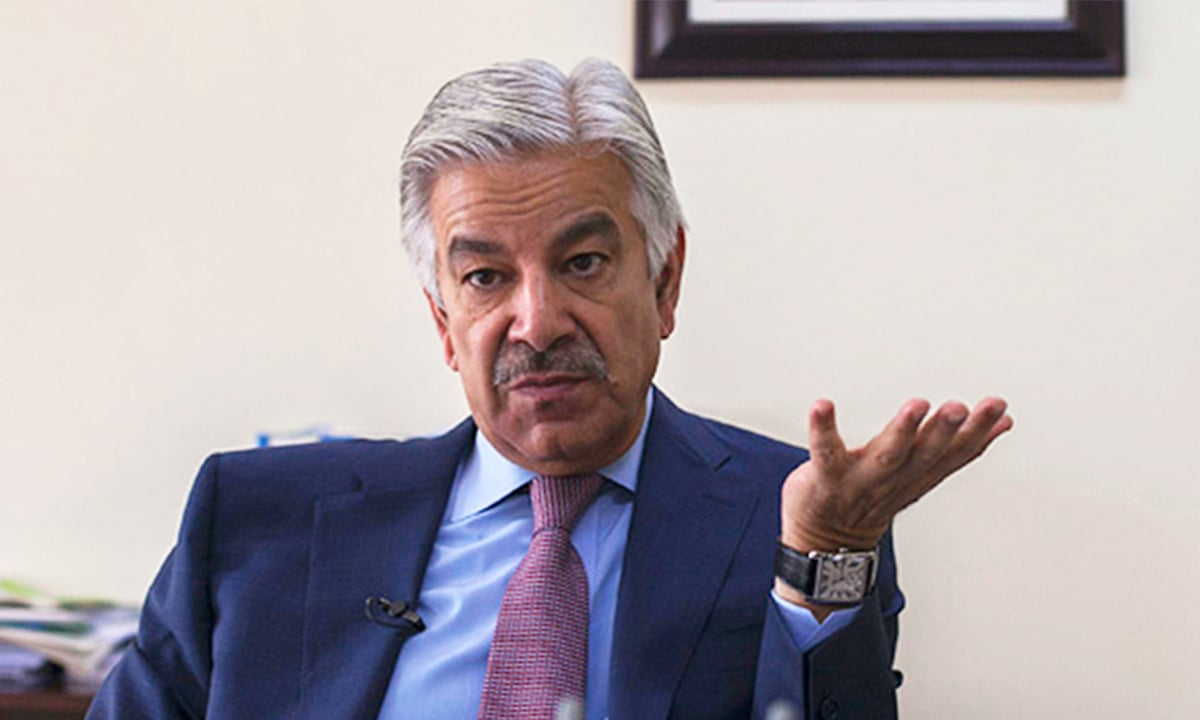[vc_row][vc_column][vc_column_text]Foreign Minister suggests action to escape embarrassment
Now it is official. Pakistan government has, for the first time, admitted the presence of terror groups in territory under its control and government’s inaction against them. Foreign Minister Khwaja Asif has asked his government to set its “house in order” for avoiding embarrassment in the international community.
Pakistan’s Foreign Minister, while talking to Geo News on Wednesday said, “We need to tell our friends that we have improved our house. We need to bring our house in order to prevent facing embarrassment on the international level.”
He clearly admitted that Pakistan had made some mistakes in the past and it should have not participated in the proxy war in Afghanistan during Zia-ul-Haq presidency. He was also quoted saying, “We need to break our false image. We have no stake but there is baggage. We need to accept the history and correct ourselves.”
Khwaja Asif also referred to China’s changing stance and remarked that “countries shouldn’t put pressure on countries they share a close relationship with.”
Pakistan foreign minister’s statement reflects the severe pressure Islamabad is currently going through. The BRICS leaders, in their declaration issued last Monday, at the end of their 9th Summit held in Xiamen, China, named Pakistan based Lashkar-e-Toiba and Jaish-e-Mohammad as terror groups. Earlier US President Donald Trump had warned Pakistan that it must stop harbouring terrorist organisations.
Earlier on Tuesday, as part of Islamabad’s damage control exercise, Khwaja Asif inaugurated a three day envoys conference in Islamabad and set the tone of the brainstorming session aimed to find answers to the multiple challenges in fast-changing geo-political realities of the region and the world at large that Pakistan faces. The conference was attended by the ambassadors of US, Russia, China, Saudi Arabia, Qatar, Afghanistan, Iran and India.
Meanwhile Islamabad based Pakistan Observer reports that Defence Minister Khurram Dastgir has, on Tuesday, said that his country has no “safe haven” for terrorists on its soil and rejected the declaration naming terrorist groups in the region by the leaders of member countries at the BRICS Summit in China on Monday.
Dastgir Said, “40% of Afghanistan is a safe haven for terrorists,” and added that “Pakistan has taken action against all groups on its soil and only the remnants of some are left.”
Meanwhile, Dawn, a leading newspaper, began its editorial on Wednesday saying, “The message is uniform from friend and foe alike: Pakistan’s tolerance for externally oriented militant groups is no longer acceptable and a serious national effort needs to be made if the country is to remain on the right side of international opinion.”
The daily admitted India’s diplomatic success at the BRICS Summit held in China a close friend of Pakistan. The daily said, “The presence of India in the five-nation bloc clearly influenced the language of the declaration in implicitly pointing towards Pakistan, but China, Russia, Brazil and South Africa will only have added their voices to the growing chorus of concern because of genuine considerations of their own.”
On the other hand, another leading newspaper The Dawn says in its editorial published on Wednesday said, “The BRICS declaration suggests an international trend that Pakistan cannot afford to ignore. The domestic fight against militancy must be made smarter, harder and more purposeful.”
Meanwhile, The Nation commented more on India’s diplomatic success at BRICS Summit. It said, “This war, to portray Pakistan as a sponsor of terrorism – and hence delegitimize the Kashmiri struggle for freedom – has been going on in full force since Narendra Modi took the office of Prime Minister of India. It has now received a significant boost.”
Pointing to the Beijing’s shifting stance towards Pakistan, the daily said, “Considering that the summit contains China, was held in China, and was stage-managed by the Chinese president, this is crucially the first time Pakistan’s “all weather friend” has explicitly called out militant groups in the country – and tacitly Pakistan as well.”
The Nation recalled that it was “China’s firm support that had emboldened Pakistan to take a firm stance after US President Donald Trump’s scathing Afghanistan speech.” However, the daily expressed its surprise by saying “Now – this statement.”
Discussing about historic ties with China, the daily said that this “Change of public stance must surely concern Pakistan. Perhaps it is time to realise the China’s friendship is not really “higher than the Himalayas, deeper than the ocean”- it is only prudent.
Around the inauguration of China Pakistan Economic Corridor (CPEC) in November last year, Pakistani radio stations broadcast advertisements and jingles on the friendly ties between the two countries were described through “higher than Himalayas, deeper than the oceans” slogans.[/vc_column_text][/vc_column][/vc_row]


 LATEST SPORTS NEWS10 hours ago
LATEST SPORTS NEWS10 hours ago
 India News10 hours ago
India News10 hours ago
 India News11 hours ago
India News11 hours ago
 India News10 hours ago
India News10 hours ago
 Latest world news5 hours ago
Latest world news5 hours ago
 India News3 hours ago
India News3 hours ago













